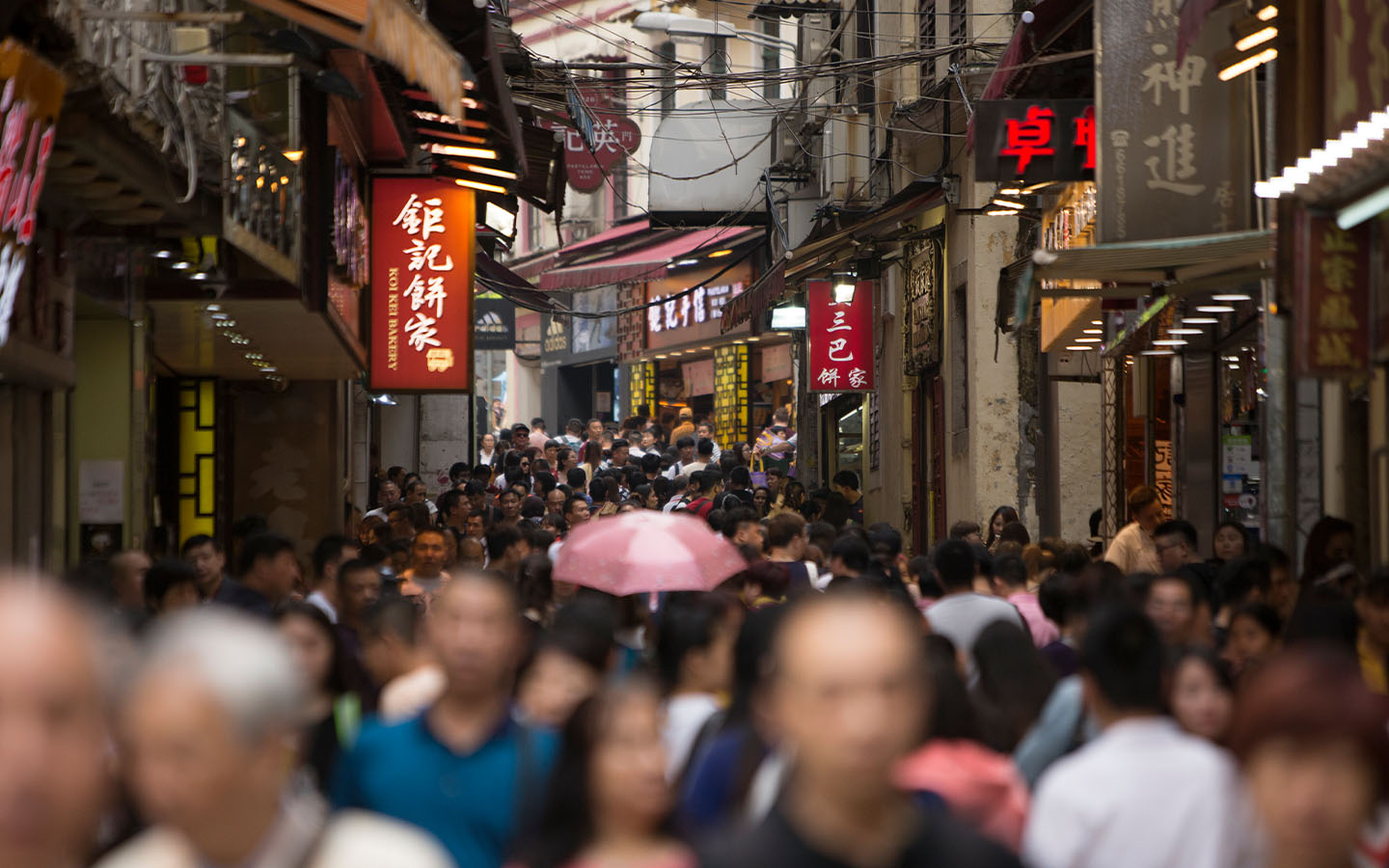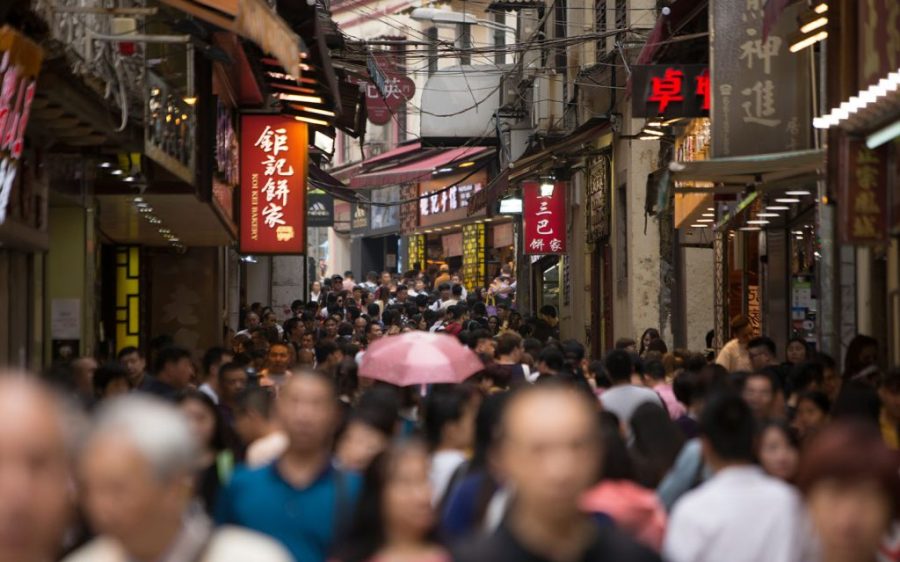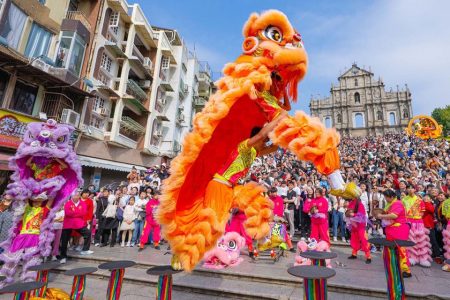Macao’s tourism arrivals continue to trend higher, with nearly 26 million visitors entering the city in the first nine months of 2024, a 30 percent increase from the same period a year ago. The Macao Government Tourism Office (MGTO) anticipates that the total number will reach 33 million visitors by the end of the year, with the figure already breaking the 30-million mark on 10 November – exceeding the 28.25 million recorded for full-year 2023.
Topline arrivals are contributing to other vital statistics related to the local economy, with tourists making their way into the integrated resorts or booking themselves into one of Macao’s many hotels. Gross gaming revenue reached 190 million patacas in the first ten months of the year, an increase of 28 percent, while occupancy rates averaged 85 percent for the first three quarters even as new rooms have been released onto the market.
[See more: Macao’s visitor arrivals this year have broken the 30 million mark]
Macao’s tourism mirrors the broader trend globally. An estimated 790 million people travelled internationally in the first seven months of 2024, an increase of 11 percent, according to data from UN Tourism. While overseas travellers are revitalising popular destinations once emptied during the pandemic, local pushback is becoming more visible. Barcelona made headlines this summer when demonstrators sprayed visitors with water, angered by the way that tourists were driving up the cost of living. Other protests against overtourism erupted in several European cities.
“That won’t happen in Macao because the general public recognises the benefits they receive from the tourism industry, through the cultural events made available and social perks like complimentary or discounted tickets,” says Professor Glenn McCartney, associate dean of the Faculty of Business Administration at the University of Macao.
Comparing the two cities, Barcelona welcomed seven visitors for each local citizen in 2023, while Macao drew in forty per resident. Although this disparity may suggest underlying pressure on Macao’s resources, McCartney notes that emphasising top-line or per-capita numbers are misleading.
[See more: Airport passenger numbers rebound, but remain below pre-pandemic levels]
“The Cotai Strip was designed for the masses so as to not disturb the peninsula with major crowds,” he says, adding that what happened in Barcelona should not be overlooked but instead serve as a catalyst for a stronger commitment to diversifying the economy.
“The conversation needs to shift away from a general vision and towards detailed specifics and key performance indicators (KPIs) that keep the diversification effort on the right track,” McCartney suggests, saying that this type of assessment determines whether a temporary cultural event or show becomes a permanent fixture, like a resident artist or singer commonly seen in Las Vegas.
Leveraging culture and creative solutions for tourism in Macao
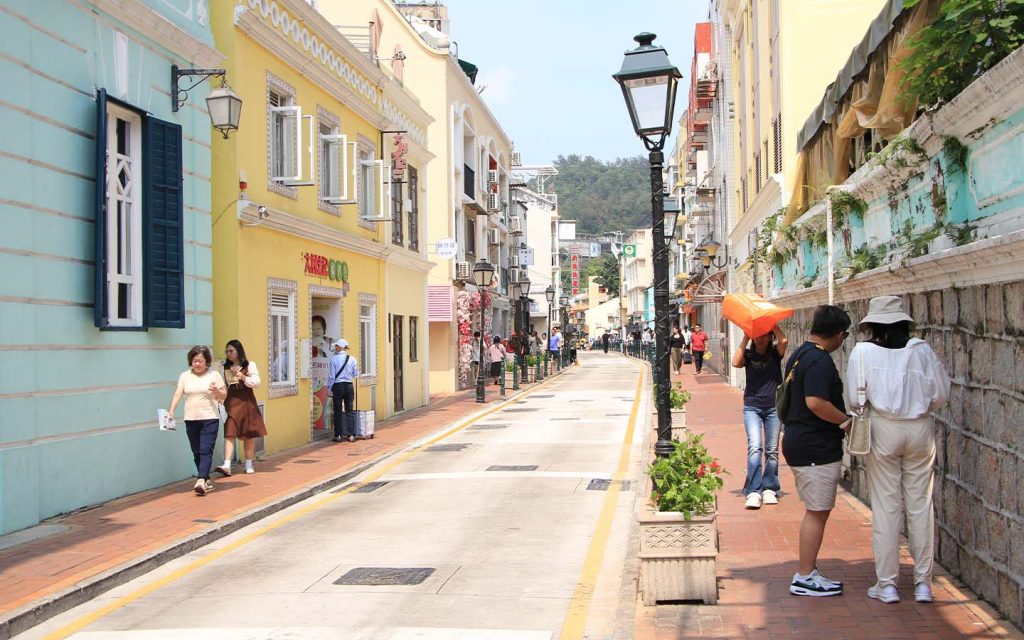
There are notable draws supporting Macao’s tourism industry beyond the integrated resorts. The city is celebrated for a multiculturalism that blends the likes of art, music, and food from different corners of the world, notably its ties with European and Portuguese-speaking countries in Africa, India, and Southeast Asia. Earlier this month, the Lusofonia Festival was extended for two weekends, giving residents and tourists a deeper knowledge of Macao’s ties with lusophone regions.
“The most popular items we sell are those with unique Portuguese characteristics showcasing Macao’s identity,” comments Heiman Sou, owner of Sardinia Macao, which operates Loja Portuguesa inside the heritage Albergue SCM complex. Sou points out that younger tourists are drawn to Portuguese products with a longer history that offers ties to Macao’s heritage.
[See more: Hotel occupancy rates rise for the first three quarters of the year]
The sentiment is echoed by Pamela Chan, managing director of Taipa Village Destination, a cultural developer for its namesake area. “Tourists are looking for something that is not readily available to them,” she describes, commenting that visitors are seeking memorable experiences that intrigue their senses. “To meet their curiosities, we are expecting more innovative eateries to open, integrating the concept of takeaway delicacies with photo opportunities,” Chan says.
[See more: Visitor arrivals increase by over 30 percent in the first three quarters of the year]
While Professor McCartney acknowledges the city’s attractions in heritage and gastronomy, he argues that it would be wise to not only expand what is offered but also to consider when and how these offerings are presented. He opines that Macao ought to invest more resources into developing nighttime experiences for both leisure and business tourists.
Overnight and same-day visitors were almost evenly split in the first three quarters; however, the latter rose 43 percent, driving the overall arrival number higher. “An evening offering would keep visitors in Macao longer, possibly overnight, which channels more expenditure into the local economy from those that are already physically here,” McCartney argues.
Balancing local interests in Macao’s tourism sector
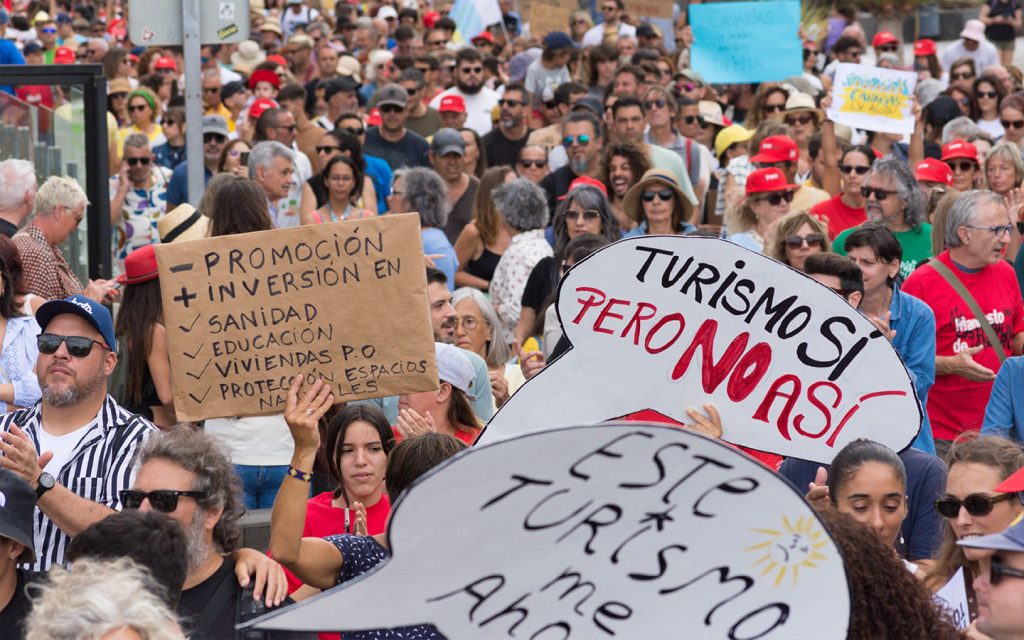
“We’re just two years away from the half-way point in the current gaming concession, and a deeper collaboration between the public and private sector, alongside a renewed branding initiative, would help avoid Macao from falling into a Dutch Disease trap,” McCartney explains, referring to an economy’s over-dependence on a single driver of growth.
That consideration is necessary to ensure each positive does not create unfair societal burdens. Chan from Taipa Village shares that their organisation has been lobbying the government to pedestrianise one of the district’s busiest streets, citing studies that have been conducted to balance the interests of tourists and residents, thereby minimising the impact on those who rely on the buses and other forms of vehicular transport for work each day.
Among protective measures is noise control. Because Taipa Village is a residential area, businesses close at 10 pm, with only a few bars staying open until around 1 am. This practice also applies to outdoor events to minimise the impact on residents, offering itself as a complication for developing an evening economy that McCartney envisions.
[See more: Macao handed out 70,000 cheap or free air tickets in the first half of 2024]
This is where collaboration between the public and private sectors is crucial, the professor explains. Attention should be on developing a feedback mechanism and establishing robust KPIs to assess progress, rather than pursuing a non-existent, magic number for tourist arrivals.
“It’s great to announce twenty, and then thirty million tourists,” McCartney says, underscoring his point to look beyond the topline arrival number, “but how that ultimately benefits the people that live in Macao is critical to retaining their support into transforming the city into a multifaceted tourism destination.”
